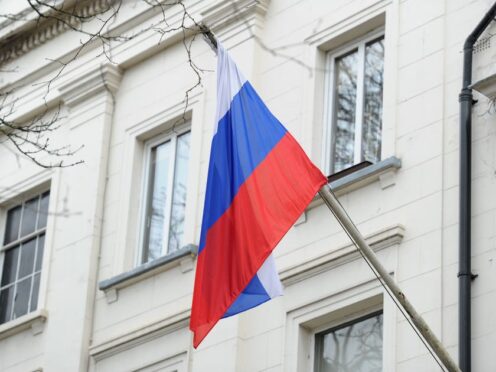Russia should not be seen as having “limitless resources” as this image is mostly propaganda, MSPs have been told by one of the country’s political scientists.
Ekaterina Schulmann, a prominent lecturer and commentator, is unable to return to Russia due to being labelled a “foreign agent”.
On Wednesday, she spoke at an event in the Scottish Parliament organised by Scottish Liberal Democrat leader Alex Cole-Hamilton.
Other Russian expats attended the talk in a Holyrood committee room, along with several MSPs, as she discussed the state of opposition to Vladimir Putin’s government.
Prof Schulmann is also an associate fellow at Chatham House and hosts a YouTube channel discussing Russian affairs.
She said that due to the “abnormal” restrictions on freedom of speech in Russia, she and other academics had been “made into some sort of radicals which actually we are not”.
Prof Schulmann stressed she is a political scientist rather than an activist and sought to offer an objective account of the political situation in Russia, presenting slides with economic data and survey results.
The country is a “personalist autocracy”, she said, with power concentrated around the Russian president and his close circles.
Determining public opinion in Russia is difficult, she said, due to people being reluctant to openly criticise government policy.

Prof Schulmann said 2024 is an “extraordinary” year for the Russian federal budget as President Putin dramatically hiked military spending amid the ongoing war with Ukraine, but this increase will not be repeated in the following years.
She said: “I’m not trying to say that economically or budgetarily speaking the system only has the stamina for another year and no longer.
“That’s not my point, I don’t think that is true.
“What I want to stress is that the idea of Russia as a country with limitless resources – human, economic and political – is mostly a propaganda feature.”
Discussing anti-war sentiment in Russia, Prof Schulmann said the beginning of mass mobilisation into the Russian armed forces was a “wake-up call” for many in the country.
However, age is still the main determining factor for support for the war with Ukraine, she said, with elderly Russians being more likely to back ongoing military action.
